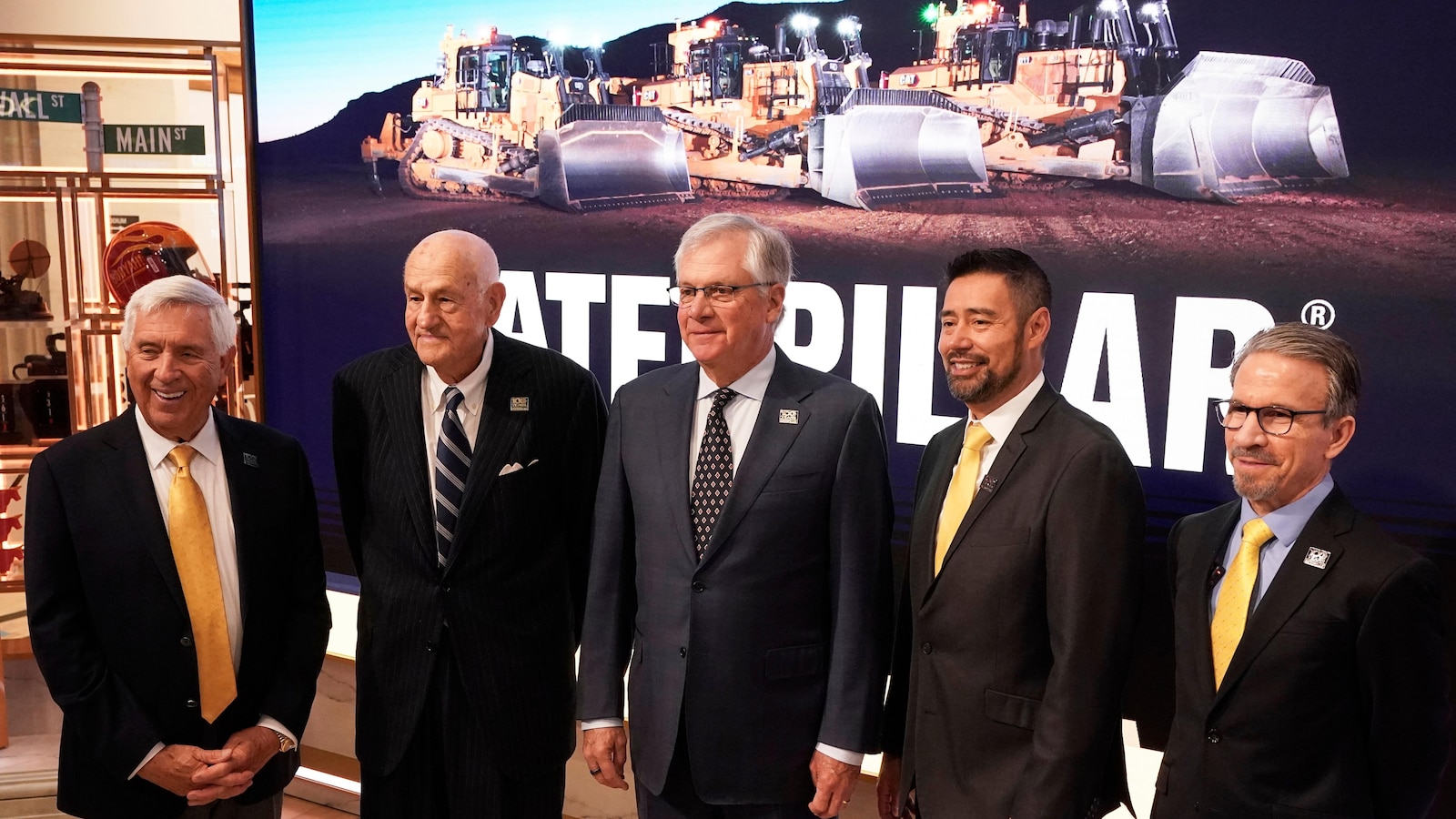NEW YORK — Uncertainty continues to hang over the latest round of financial results and forecasts for companies both big and small as they try to navigate a global trade system severely shaken by a shift in U.S. policy.
Tariffs and the stark shift in policy has also shaken consumer and business confidence. The U.S. economy shrank during the first quarter of the year, its first drop in three years. Consumer spending has ramped up, likely an effort to get ahead of tariffs, and companies are pulling back on hiring. Stunted consumer spending and weaker employment could further hurt the U.S. economy.
Roughly half of the companies in the S&P 500 have reported their latest quarterly financial results, but the focus has been on how they will adjust to tariffs and any change in consumers’ behavior. The focus remains blurry for both companies and investors because of the on-again-off-again nature of President Donald Trump’s policy
Trump has implemented a range of tariffs on goods from some of the biggest U.S. trading partners and many of those countries have hit back with retaliatory tariffs. At the same time, Trump has pulled back or postponed some tariffs. The situation remains unpredictable and that is problematic for companies trying to plan ahead and investors looking for stability.
Here’s what companies are saying about tariffs and the potential impact:
Caterpillar’s latest profit and revenue results fell sharply from a year ago and they also missed Wall Street forecasts.
The heavy machinery maker and industrial bellwether is among the many companies giving investors an uncertain forecast. Its equipment is used by the construction, mining and energy industries. Wall Street often uses Caterpillar’s financial position and forecasts as a gauge for how well those industries are performing or will potentially perform in the quarter and year ahead.
Without any impact from tariffs, the company expects sales and revenue in 2025 to match the prior year. With the current tariffs in place, sales and revenue are expected to dip slightly.
Stanley Black & Decker said it raised prices in April and plans to raise prices again in the third quarter of the year as a reaction to tariffs.
The maker of drills and other tools trimmed its earnings forecast for the year, based on the impact of tariffs and planned adjustments to its supply chain.
“In light of the current environment, we are accelerating adjustments to our supply chain and exploring all options as we seek to minimize the impact of tariffs on end users while balancing the need to protect our business and our ability to innovate for years to come,” said CEO Donald Allan, Jr., in a statement.
Newell Brands has not changed its current financial forecast for the year, but warned that tariffs on China could take a big bite out of profits if they stand.
The company makes ubiquitous consumer goods under brand names including Rubbermaid, Paper Mate and Coleman. It expects that tariffs on China, if they stand, to shave 20 cents per share from earnings. Newell Brands said it is already working on actions that could cut that impact in half.
British bank Barclays saw its profit in the first-quarter of the year spike by a fifth largely as a result of a boom in trading activity sparked by the turmoil in financial markets following the array of tariffs announced by U.S. President Donald Trump.
Barclays said the 16% increase in income across its investment banking division to nearly 4 billion pounds ($5.3 billion) outweighed the hit to dealmaking from tariff and economic uncertainty. As a result. net profit rose 20% to 2.1 billion pounds.
Still, the bank said it has set aside more cash for bad debts due to worries over the American economy as a result of the uncertainty. Barclays has an exposure to the tariff woes and U.S. economy through its sizable operations in America, where it has 20 million customers.
CEO C.S. Venkatakrishnan said the group remains “very committed” to its U.S. business, despite the clouded outlook for the American economy.
U.K.-based drugmaker GSK, formerly known as GlaxoSmithKline, has said it is “well positioned” to cope with any financial impact from changes to U.S. tariff rules.
The company maintained its financial guidance for the year despite uncertainty over U.S. tariffs, with the Trump administration currently investigating whether to change tariff policy for the pharmaceuticals sector.
GSK was among pharmaceutical firms to recently call on the European Union to allow them to increase prices amid uncertainty over tariffs in the sector, warning Europe it will fall further behind the U.S. without stronger investment.
Sysco cut its forecast for the year amid uncertainties over how tariffs will impact consumer spending.
The food distributor purchases more than 90% of its products in each country that it operates within. That leaves it less exposed to tariff cost impacts than other industries, it said.
“Our main concern is the negative impact that tariff noise and volatility is clearly having on end consumer confidence and sentiment,” said CEO Kevin Hourican, in a conference call with analysts.
___
AP writer Panagiotis Pylas contributed to this report.

